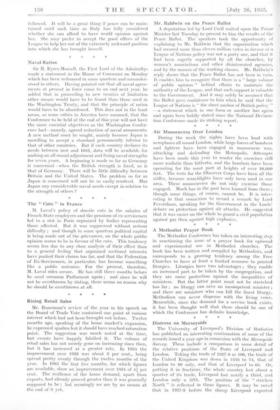Naval Ratios Sir B. Eyres-Monsell, the First Lord of the
Admiralty, made a statement in the House of Commons on Monday which has been welcomed in some quarters and misunder- stood in others. Having pointed out that all naval agree- ments at present in force come .to an end next year, he added that in proceeding to new treaties of limitation other means would have to be found than those used in the Washington Treaty, and that the principle of ratios would have to be abandoned. This does not in the least mean, as some critics in America have assumed, that the Conference to be held at the end of this year will not have the same essential objectives as the Washington Confer- ence had—namely, agreed reduction of naval armaments. A new method must be sought, mainly because Japan is unwilling to accept a standard permanently inferior to that of other countries. But if each country declares its needs between now and 1942, data will be available for making an all-round adjustment and fixing naval strengths for seven years. A beginning is made so far as Germany is concerned—when the British strength is fixed, so is that of Germany. There will be little difficulty between Britain and the United States. The problem so far as Japan is concerned will not be so easily resolved. Has Japan any considerable naval needs except in relation to the strength of others ?
* * * *





































 Previous page
Previous page